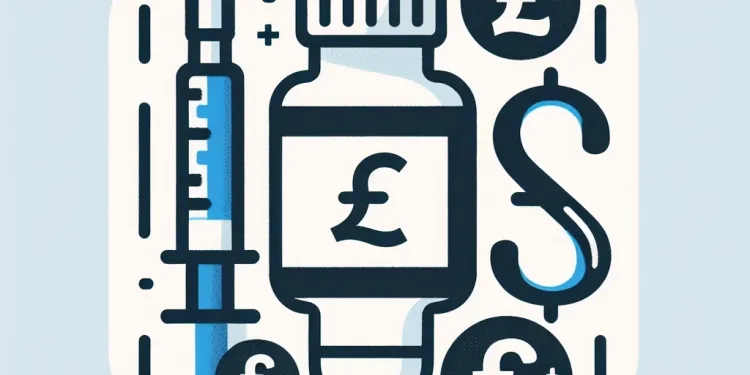
Find A Professional
More Items From Ergsy search
-

Can stress affect my Type 2 Diabetes?
Relevance: 100%
-

Can Mounjaro be used in type 1 diabetes?
Relevance: 90%
-

Is Ozempic suitable for type 1 diabetes?
Relevance: 81%
-

Is Type 2 Diabetes hereditary?
Relevance: 78%
-

What causes Type 2 Diabetes?
Relevance: 74%
-

Where can I find support for managing Type 2 Diabetes in the UK?
Relevance: 70%
-

Can Type 2 Diabetes go away?
Relevance: 69%
-

What Is Type 2 Diabetes? | 2 Minute Guide | Diabetes UK
Relevance: 68%
-

Can Type 2 Diabetes be prevented?
Relevance: 66%
-

What is type 1 diabetes?
Relevance: 63%
-

Type 1 Diabetes supporting adults to manage Type 1 diabetes
Relevance: 62%
-

What complications are associated with Type 2 Diabetes?
Relevance: 60%
-

What are the symptoms of Type 2 Diabetes?
Relevance: 59%
-

What is the role of insulin in Type 2 Diabetes?
Relevance: 58%
-

Derbyshire Diabetic Eye Screening - Diabetic Eye Screening
Relevance: 57%
-

How to manage type 2 diabetes
Relevance: 54%
-

How is Type 2 Diabetes diagnosed?
Relevance: 54%
-

NHS Diabetes Prevention Programme; Preventing Type 2 and improving outcomes for people with diabetes
Relevance: 54%
-

Improving outcomes for people with diabetes
Relevance: 54%
-

Can stress cause asthma symptoms?
Relevance: 53%
-

How is Type 2 Diabetes treated?
Relevance: 53%
-
What is Barbie Doll Diabetes?
Relevance: 51%
-

Is Teplizumab used to treat diabetes?
Relevance: 51%
-

Can stress trigger psoriasis flare-ups?
Relevance: 48%
-

Type 2 diabetes - common signs and symptoms UHL NHS Trust
Relevance: 48%
-

Is Wegovy used for type 2 diabetes management?
Relevance: 44%
-

Patient voices in type one diabetes - I would have done things differently.
Relevance: 42%
-

The NHS Diabetes Prevention Programme story
Relevance: 42%
-

Gestational Diabetes during pregnancy
Relevance: 42%
-

How often should I check my blood glucose levels?
Relevance: 41%
-

Tom's story (NHS Diabetes Prevention Programme)
Relevance: 40%
-

Hansa's story - The NHS Diabetes Prevention Programme
Relevance: 39%
-

Gestational diabetes | NHS
Relevance: 39%
-

Can stress make Crohn's disease worse?
Relevance: 37%
-

Sarah and Glinys Managing Diabetes into remission Jan2019
Relevance: 36%
-

Pam’s story - The NHS Diabetes Prevention Programme
Relevance: 36%
-

What can I eat if I have Type 2 Diabetes?
Relevance: 36%
-

Tom's story (NHS Diabetes Prevention Programme)
Relevance: 33%
-

Diabetes Eye Screening
Relevance: 33%
-

Diabetic Foot Conditions Podiatrist
Relevance: 32%
Understanding Stress and Type 2 Diabetes
Living with Type 2 Diabetes presents ongoing challenges, and stress can play a significant role in impacting your condition. Stress is a natural part of life, but when it becomes overwhelming, it can negatively affect your physical and mental well-being. For individuals with Type 2 Diabetes, managing stress is crucial for maintaining stable blood glucose levels and overall health.
The Impact of Stress on Blood Sugar Levels
When you're under stress, your body enters a 'fight or flight' mode, releasing stress hormones like cortisol and adrenaline. These hormones can cause your liver to release additional glucose into your bloodstream, potentially leading to higher blood sugar levels. While this response may have been beneficial for our ancestors needing to escape danger, it poses challenges for those with diabetes.
In addition to hormonal changes, stress can lead to unhealthy behaviours such as overeating, poor dietary choices, or neglecting your diabetes management plan. These factors can further contribute to fluctuations in blood sugar levels.
Psychological Stress and Diabetes Management
Stress doesn’t only impact physical health; it also affects your mental and emotional well-being. Feeling overwhelmed, anxious, or depressed can make it harder to manage your diabetes effectively. You might skip medication doses, ignore meal planning, or avoid physical activity, all of which are crucial for managing Type 2 Diabetes.
Furthermore, stress can cloud judgment and reduce motivation, making it difficult to adhere to your diabetes management routine. Therefore, addressing stress is not merely about comfort; it is a key component of diabetes care.
Stress Reduction Techniques
Fortunately, there are several strategies to help mitigate stress and its effects on diabetes. Regular physical activity can be an excellent stress reliever and help control blood sugar levels. Activities such as walking, swimming, or yoga can promote relaxation and improve mood.
Mindfulness meditation and deep breathing exercises are also effective in reducing stress. These practices help calm the mind and improve focus, enabling better management of both stress and diabetes.
It is also beneficial to maintain a support network. Whether it's friends, family, or a support group, sharing your experiences and challenges can alleviate stress and provide valuable encouragement.
Seeking Professional Help
Sometimes, managing stress on your own might not be enough. If stress becomes overwhelming or if you're experiencing depression or anxiety, consider speaking with a healthcare professional. Many NHS services offer support for mental health issues and can work alongside your diabetes care team.
Overall, understanding the link between stress and Type 2 Diabetes is essential. By recognising stressors and implementing effective management strategies, you can better control your diabetes and improve your quality of life.
Understanding Stress and Type 2 Diabetes
Living with Type 2 Diabetes is hard. Stress can make it even harder. Stress is a part of life, but too much stress is bad for our body and mind. People with Type 2 Diabetes need to manage stress to keep blood sugar levels steady and stay healthy.
The Impact of Stress on Blood Sugar Levels
When you feel stressed, your body goes into "fight or flight" mode. This means your body releases hormones like cortisol and adrenaline. These hormones tell your liver to send more sugar into your blood, which can raise your blood sugar levels. This can be a problem for people with diabetes.
Stress can also make you do things that are not healthy, like eating too much or not following your diabetes plan. These things can also make your blood sugar levels go up and down.
Psychological Stress and Diabetes Management
Stress can affect how you feel in your mind too. Feeling worried or sad can make it hard to take care of your diabetes. You might forget your medicine, skip meal planning, or not exercise. But these things are important for managing Type 2 Diabetes.
Stress can also make it hard to think clearly and stay motivated. This can make it hard to stick to your diabetes care routine. Managing stress is important for looking after your diabetes.
Stress Reduction Techniques
Here are some ways to reduce stress and help with diabetes. Doing physical activity like walking, swimming, or yoga can make you feel better and help control blood sugar.
Practicing mindfulness or deep breathing can help you feel calm. These activities help you stay focused and manage stress and diabetes better.
It also helps to talk to friends, family, or join a support group. Sharing how you feel can reduce stress and give you support.
Seeking Professional Help
If stress feels too much or you feel very sad or anxious, talk to a doctor or therapist. They can help with stress and work with your diabetes team to support you.
It's important to understand how stress and Type 2 Diabetes are connected. By knowing what stresses you and finding ways to manage it, you can control your diabetes better and feel better overall.
Frequently Asked Questions
Can stress affect my blood sugar levels if I have Type 2 Diabetes?
Yes, stress can cause an increase in blood sugar levels due to the release of stress hormones like cortisol and adrenaline.
How does stress influence Type 2 Diabetes management?
Stress can make managing Type 2 Diabetes more challenging by affecting blood sugar control, leading to poor dietary choices or neglecting exercise routines.
What are the physical symptoms of stress that could impact my diabetes?
Symptoms include increased heart rate, elevated blood pressure, and increased blood glucose levels, all of which can affect diabetes management.
Are there psychological effects of stress that impact Type 2 Diabetes?
Yes, stress can lead to anxiety or depression, which might result in poor self-care habits, thereby impacting diabetes control.
Can stress lead to insulin resistance?
Yes, chronic stress can contribute to insulin resistance, making it harder to manage blood glucose levels effectively.
How can I tell if stress is affecting my blood sugar levels?
Monitoring your blood sugar levels regularly and noticing patterns or spikes during stressful periods can indicate stress-related effects.
Can stress aggravate the complications of Type 2 Diabetes?
Chronic stress can worsen complications such as cardiovascular disease and neuropathy by affecting blood sugar control.
What stress management techniques can help with diabetes management?
Techniques such as mindfulness, meditation, regular exercise, and proper sleep can help reduce stress levels, improving diabetes management.
Does stress eating affect Type 2 Diabetes?
Yes, stress eating often leads to consumption of high-sugar or high-fat foods, which can spike blood sugar levels.
Can counseling or therapy help with stress management in diabetes?
Yes, professional counseling or therapy can be effective in managing stress and improving mental health, aiding better diabetes control.
Is there a link between stress and weight gain in diabetics?
Chronic stress can lead to weight gain due to stress eating and hormonal changes, which can further complicate Type 2 Diabetes.
Can yoga or meditation benefit people with Type 2 Diabetes under stress?
Yes, yoga and meditation can significantly reduce stress, promoting relaxation and better blood sugar control.
How does insufficient sleep due to stress affect Type 2 Diabetes?
Lack of sleep can increase stress and blood sugar levels, worsening insulin resistance and diabetes management.
What role does cortisol play in stress and diabetes?
Cortisol, a stress hormone, raises blood sugar levels and can exacerbate insulin resistance in people with Type 2 Diabetes.
Can stress cause blood sugar levels to stay elevated for a long period?
Yes, prolonged stress can keep blood sugar levels elevated, increasing the risk of complications.
Do relaxation techniques really help lower blood sugar levels?
Relaxation techniques can help reduce stress, which in turn can lower blood pressure and blood sugar levels.
Should I consult a doctor if stress is affecting my diabetes control?
Yes, if you notice stress significantly affecting your diabetes management, consulting with a healthcare provider is advisable.
Can stress alone trigger Type 2 Diabetes?
While stress alone might not cause Type 2 Diabetes, it can exacerbate factors such as weight gain and insulin resistance.
Are there medications that help manage stress and Type 2 Diabetes together?
Some medications can address stress and anxiety, but managing diabetes often requires a comprehensive approach, including lifestyle changes.
How often should I check my blood sugar levels if I'm stressed?
During periods of stress, you may need to monitor your blood sugar more frequently to adjust your management plan accordingly.
Can stress change my blood sugar if I have Type 2 Diabetes?
Yes, stress can make blood sugar go up. This happens because stress makes your body let out special hormones like cortisol and adrenaline.
How does stress affect taking care of Type 2 Diabetes?
Stress can make it harder to take care of your diabetes. It can change your blood sugar levels. When you are stressed, you might forget to eat right or take your medicine.
To help with stress, you can try:
- Talking to a friend or family member
- Doing fun exercises, like walking or dancing
- Using apps that help you relax or remind you to take your medicine
If stress is a big problem, tell your doctor. They can help you find more ways to manage it.
Stress can make it harder to take care of Type 2 Diabetes. It can change your blood sugar, make you eat unhealthy foods, or skip exercise.
How can stress make my diabetes worse, and what might I feel in my body?
Signs to watch for are a fast heartbeat, high blood pressure, and high sugar in the blood. These can make diabetes harder to manage.
Can stress change how Type 2 Diabetes affects you?
Yes, stress can make people feel worried or sad. This can make it hard for them to take care of themselves. If they don't take care of themselves, it can make diabetes harder to manage.
Here are some things that can help:
- Take deep breaths to relax.
- Talk to someone you trust about how you feel.
- Write down what makes you feel stressed.
- Try to get enough sleep each night.
Can stress cause problems with insulin?
When people feel stressed, it might make it hard for their body to use insulin. Insulin is a hormone that helps manage sugar in our blood.
If you want to understand how stress affects your body and insulin, you can:
- Talk to a doctor or a health professional.
- Read simple books or watch easy videos about how the body works.
- Use apps that explain health in simple ways.
Remember, taking deep breaths and relaxing can sometimes help with stress.
Yes, stress that lasts a long time can make it harder for your body to use insulin. This can make it tough to keep your blood sugar at the right level.
How do I know if stress is changing my blood sugar levels?
Check your blood sugar levels often. Try to see if they go up when you feel stressed. This can help you know if stress is making your blood sugar change.
Does stress make Type 2 Diabetes worse?
When you are stressed for a long time, it can make health problems worse. It can be bad for your heart and nerves because it changes how your body controls sugar in your blood.
What can help with stress and diabetes?
Do you feel stressed and have diabetes? Here are some simple ways to feel better:
- Deep Breathing: Take deep breaths slowly. This can calm you down.
- Exercise: Moving your body, like walking, can make stress go away.
- Talk to Someone: Share how you feel with a friend or family.
- Rest: Good sleep helps your body feel better.
- Healthy Snack: Choose a healthy snack to keep your energy up.
Try these tips to help you feel less stressed every day.
There are things you can do to feel less stressed. Feeling less stressed can help you take care of diabetes better.
Here are some things to try:
- Mindfulness: Try to be calm and focus on what you are doing right now.
- Meditation: Sit quietly and breathe slowly. Think about nice things.
- Exercise: Move your body by walking, running, or playing sports.
- Sleep: Make sure you get enough rest at night.
These can all help you feel better.
Can eating because of stress change Diabetes Type 2?
Yes, stress eating means eating when you are worried or upset. People often eat foods with lots of sugar or fat when stressed. These foods can make your blood sugar go up very fast.
Can talking to someone help with stress when you have diabetes?
Yes, talking to a counselor or therapist can help you feel less stressed. It can also help you manage your diabetes better.
Does stress make people with diabetes gain weight?
When you feel stressed for a long time, it can make you eat more. This can make you gain weight. Your body also changes when you are stressed, which can make it harder to deal with Type 2 Diabetes.
Can yoga or meditation help people with Type 2 Diabetes who are stressed?
Yes, doing yoga and meditation can help you feel less stressed. It helps you relax and keep your blood sugar at a good level.
How does not getting enough sleep because of stress affect Type 2 Diabetes?
Getting enough sleep is important, especially if you have Type 2 Diabetes. When you are stressed, you might not sleep well. This can make it harder to control your blood sugar.
If you don't sleep enough, your body might have trouble using insulin. Insulin helps keep blood sugar levels steady. If insulin does not work well, blood sugar can go too high.
Here are some tips to help you sleep better:
- Go to bed at the same time every night
- Make your bedroom quiet and dark
- Avoid caffeine in the afternoon and evening
- Try to relax before bed by reading a happy book or listening to calm music
If you need help understanding more about sleep and diabetes, you can talk to a doctor or a nurse. They can give you more advice.
Not getting enough sleep can make you feel more stressed. It can also make your blood sugar go up. This can make it harder to manage diabetes.
How does cortisol affect stress and diabetes?
Cortisol is a hormone in your body.
Cortisol helps you feel stressed or calm.
Too much cortisol can make you more stressed.
Too much cortisol can also affect diabetes.
It is good to learn ways to relax.
Relaxing can help lower cortisol levels.
You can use tools like deep breathing or listening to calming music.
These tools can help you if you feel too stressed.
Cortisol is a hormone that the body makes when you are stressed. It can make blood sugar (the sugar in your blood) go up. This can make it harder for people with Type 2 Diabetes to use insulin properly.
Does stress make blood sugar stay high for a long time?
Sometimes, when you feel stressed, it can make your blood sugar go up. If you feel stressed for a long time, your blood sugar might stay high.
Try doing some calm activities like drawing or listening to music to help you feel better.
If you are worried, ask an adult for help.
Yes, feeling stressed for a long time can make your blood sugar stay high. This can make it more likely for health problems to happen.
Can calming activities help make blood sugar levels lower?
Relaxing can help you feel less worried. This can help keep your blood pressure and blood sugar healthy.
Should I talk to a doctor if stress is making my diabetes hard to manage?
If you feel stressed and find it hard to keep your diabetes under control, it is a good idea to talk to a doctor. Stress can make managing diabetes harder.
Here are some tips to help you:
- Write down your stress feelings and blood sugar levels. Share these with your doctor.
- Try deep breathing to relax. Breathe in slowly, then breathe out slowly.
- Ask a family member or friend for support. Talking can help you feel better.
Remember, your doctor can give you advice and help you feel better.
If you feel stress is making it hard to take care of your diabetes, it is a good idea to talk to your doctor or nurse. They can help you.
Can Stress Cause Type 2 Diabetes?
Stress is when you feel worried or nervous. Some people think stress might make them sick.
Doctors say stress does not cause Type 2 Diabetes by itself. But, being stressed a lot is not good for your health.
If you are stressed, talk to someone who can help. Try to relax and do things that make you happy.
Pictures and videos can help you understand better.
Stress might not directly cause Type 2 Diabetes, but it can make things worse. Stress can lead to weight gain and make it harder for the body to use insulin.
Can medicine help with stress and Type 2 Diabetes?
Some medicines can help with both stress and Type 2 Diabetes. It's important to talk to your doctor.
Here are some things you can do to feel better:
- Go for a walk or exercise.
- Eat healthy foods.
- Talk to friends or family about how you feel.
- Try deep breathing or relaxation exercises.
Ask your doctor if there are medicines that might help you.
Some medicines can help with stress and worry. But taking care of diabetes usually needs more than that. It includes changing how you live.
How many times should I check my blood sugar when I am stressed?
When you feel stressed, your blood sugar can change.
You might need to check more often.
Talk to your doctor or nurse. They can tell you how often is best.
You can use a diary or phone app to remind you to check.
When you feel stressed, check your blood sugar more often. This helps you change your plan if needed.
Useful Links
- Ergsy carfully checks the information in the videos we provide here.
- Videos shown by Youtube after a video has completed, have NOT been reviewed by ERGSY.
- To view, click the arrow in centre of video.
- Most of the videos you find here will have subtitles and/or closed captions available.
- You may need to turn these on, and choose your preferred language.
- Go to the video you'd like to watch.
- If closed captions (CC) are available, settings will be visible on the bottom right of the video player.
- To turn on Captions, click settings .
- To turn off Captions, click settings again.
More Items From Ergsy search
-

Can stress affect my Type 2 Diabetes?
Relevance: 100%
-

Can Mounjaro be used in type 1 diabetes?
Relevance: 90%
-

Is Ozempic suitable for type 1 diabetes?
Relevance: 81%
-

Is Type 2 Diabetes hereditary?
Relevance: 78%
-

What causes Type 2 Diabetes?
Relevance: 74%
-

Where can I find support for managing Type 2 Diabetes in the UK?
Relevance: 70%
-

Can Type 2 Diabetes go away?
Relevance: 69%
-

What Is Type 2 Diabetes? | 2 Minute Guide | Diabetes UK
Relevance: 68%
-

Can Type 2 Diabetes be prevented?
Relevance: 66%
-

What is type 1 diabetes?
Relevance: 63%
-

Type 1 Diabetes supporting adults to manage Type 1 diabetes
Relevance: 62%
-

What complications are associated with Type 2 Diabetes?
Relevance: 60%
-

What are the symptoms of Type 2 Diabetes?
Relevance: 59%
-

What is the role of insulin in Type 2 Diabetes?
Relevance: 58%
-

Derbyshire Diabetic Eye Screening - Diabetic Eye Screening
Relevance: 57%
-

How to manage type 2 diabetes
Relevance: 54%
-

How is Type 2 Diabetes diagnosed?
Relevance: 54%
-

NHS Diabetes Prevention Programme; Preventing Type 2 and improving outcomes for people with diabetes
Relevance: 54%
-

Improving outcomes for people with diabetes
Relevance: 54%
-

Can stress cause asthma symptoms?
Relevance: 53%
-

How is Type 2 Diabetes treated?
Relevance: 53%
-
What is Barbie Doll Diabetes?
Relevance: 51%
-

Is Teplizumab used to treat diabetes?
Relevance: 51%
-

Can stress trigger psoriasis flare-ups?
Relevance: 48%
-

Type 2 diabetes - common signs and symptoms UHL NHS Trust
Relevance: 48%
-

Is Wegovy used for type 2 diabetes management?
Relevance: 44%
-

Patient voices in type one diabetes - I would have done things differently.
Relevance: 42%
-

The NHS Diabetes Prevention Programme story
Relevance: 42%
-

Gestational Diabetes during pregnancy
Relevance: 42%
-

How often should I check my blood glucose levels?
Relevance: 41%
-

Tom's story (NHS Diabetes Prevention Programme)
Relevance: 40%
-

Hansa's story - The NHS Diabetes Prevention Programme
Relevance: 39%
-

Gestational diabetes | NHS
Relevance: 39%
-

Can stress make Crohn's disease worse?
Relevance: 37%
-

Sarah and Glinys Managing Diabetes into remission Jan2019
Relevance: 36%
-

Pam’s story - The NHS Diabetes Prevention Programme
Relevance: 36%
-

What can I eat if I have Type 2 Diabetes?
Relevance: 36%
-

Tom's story (NHS Diabetes Prevention Programme)
Relevance: 33%
-

Diabetes Eye Screening
Relevance: 33%
-

Diabetic Foot Conditions Podiatrist
Relevance: 32%